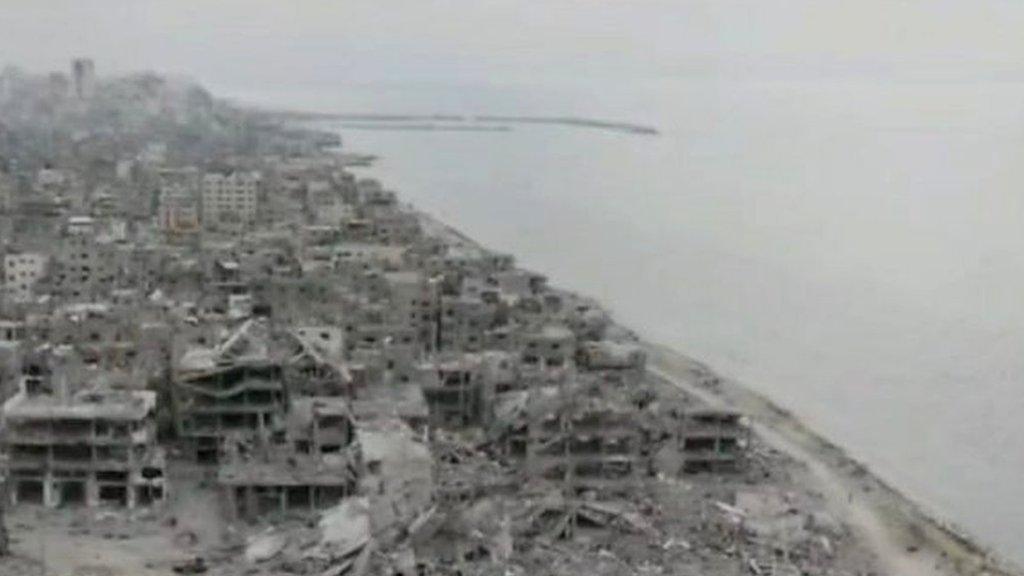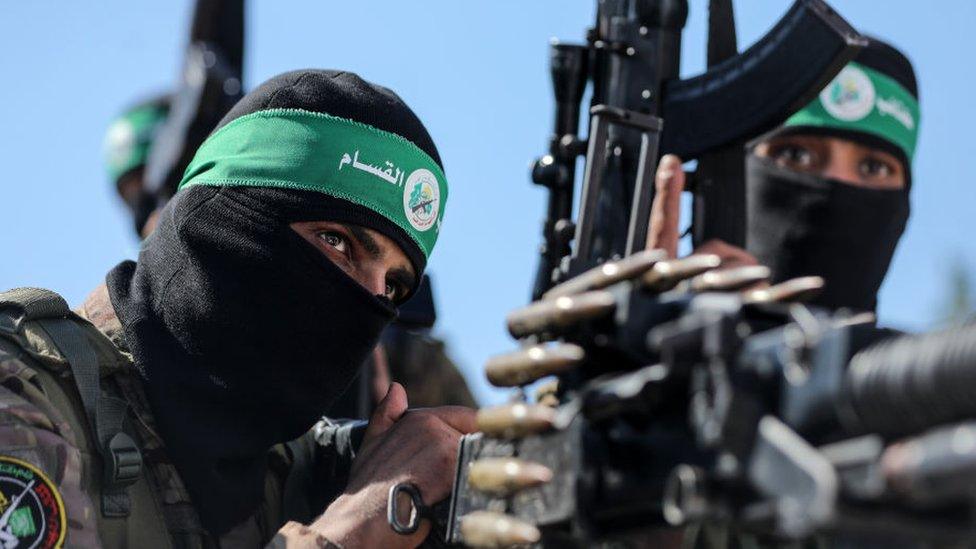'Who will call me Dad?' Tears of Gaza father who lost 103 relatives
- Published
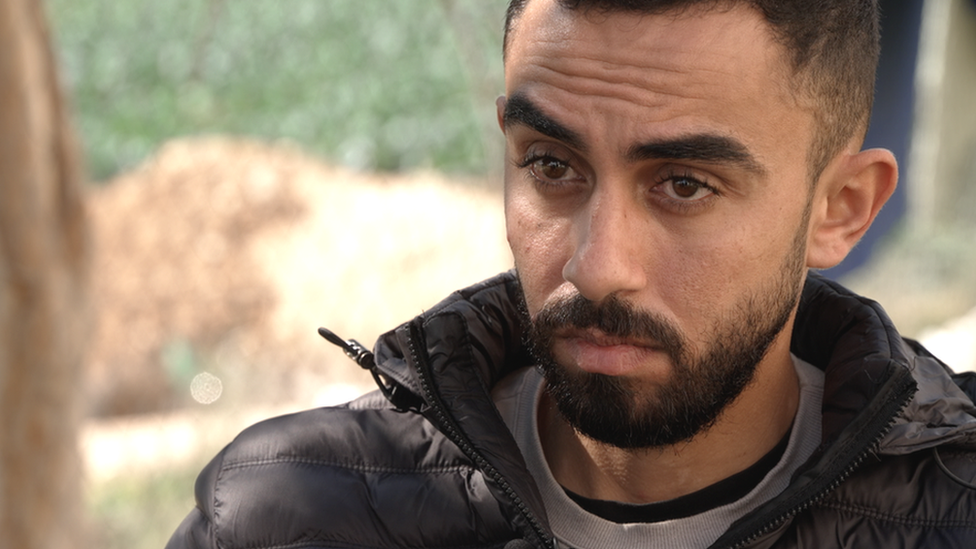
Ahmad al-Ghuferi was stuck in the West Bank when a bomb killed 103 members of his family in Gaza City
Ahmad al-Ghuferi missed the bomb that obliterated his family.
When 103 relatives were killed in a strike on their family home in Gaza City, he was stuck 50 miles (80km) away, in the occupied West Bank town of Jericho.
Ahmad had been working on a Tel Aviv construction site when Hamas attacked Israel on 7 October - unable to return to his wife and three young daughters because of the war that followed, and Israel's military blockade.
He spoke to them at the same time every day, when the phone connections allowed, and was on the phone to his wife, Shireen, as the attack happened on the evening of 8 December.
"She knew she would die," he said. "She told me to forgive her for anything bad she might ever have done to me. I told her there was no need to say that. And that was the last call between us."
A large bomb attack on his uncle's house that evening killed his wife and his three young daughters - Tala, Lana and Najla.
It also killed Ahmad's mother, four of his brothers and their families, as well as dozens of his aunts, uncles and cousins. More than 100 dead in all. Over two months on, some of their bodies are still trapped under the rubble.
Last week, he marked his youngest daughter's birthday. Najla would have turned two. Ahmad is still trying to grasp the loss.
Unable to hold his children's bodies or be at their hurried burials, he still speaks of them in the present tense, his face motionless beneath the rolling tears.
"My daughters are little birds to me," he said. "I feel like I'm in a dream. I still can't believe what's happened to us."
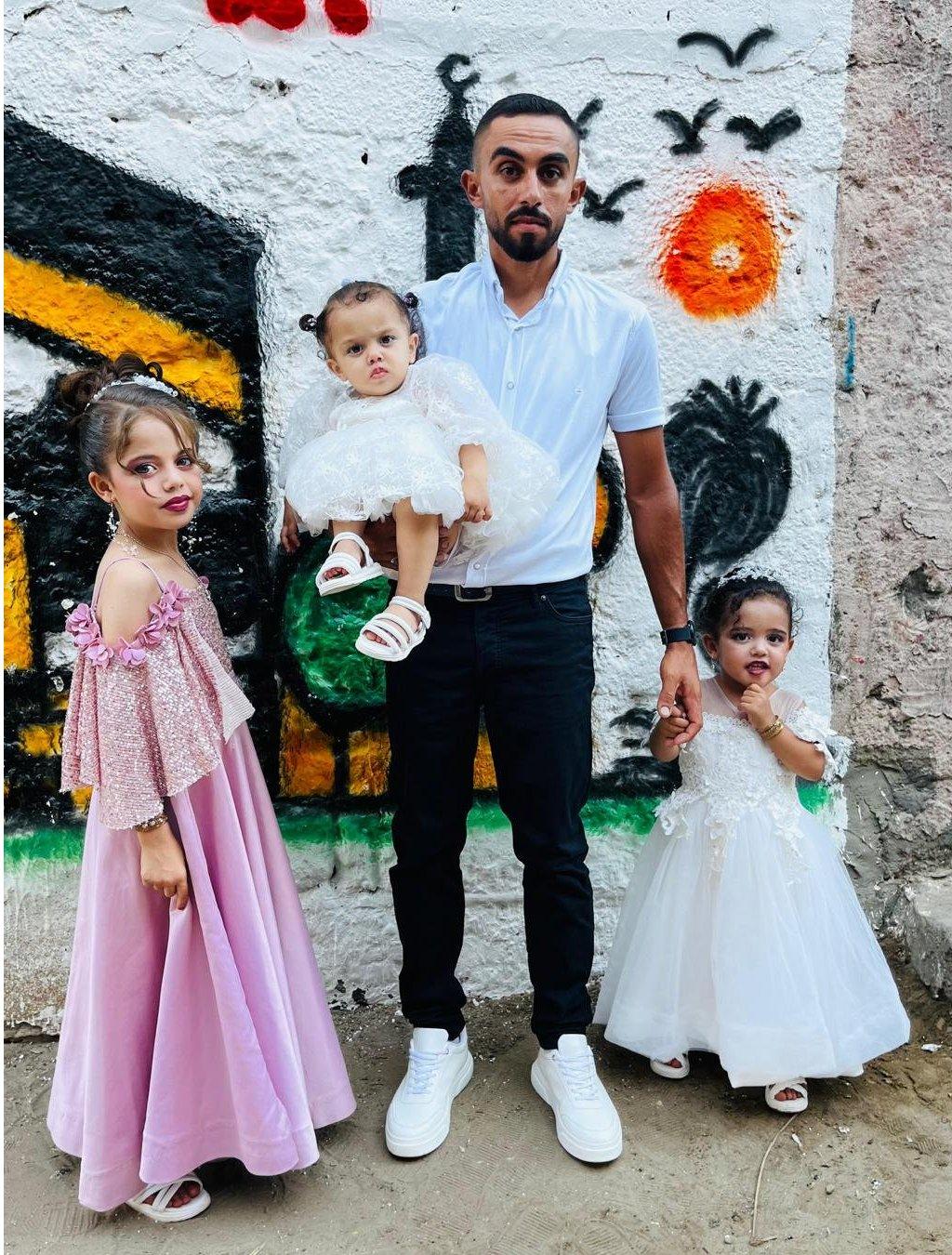
Ahmad with his three daughters, Tala, Lana and Najla
He has removed pictures of the girls from his phone and laptop screens, so as not to be ambushed by them.
He has been left to piece together the story of what happened from the accounts of a few surviving relatives and neighbours.
They told him that a missile had first struck the entrance to his family's house.
"They hurried out and went to my uncle's house nearby," he said. "Fifteen minutes later, a fighter jet hit that house."
The four-storey building where the family was killed sat around the corner from the Sahaba Medical Centre in Gaza City's Zeitoun neighbourhood.
It is now a mound of splintered concrete, the rubble shot through with bright dots of colour: a green plastic cup, shreds of dusty clothing.
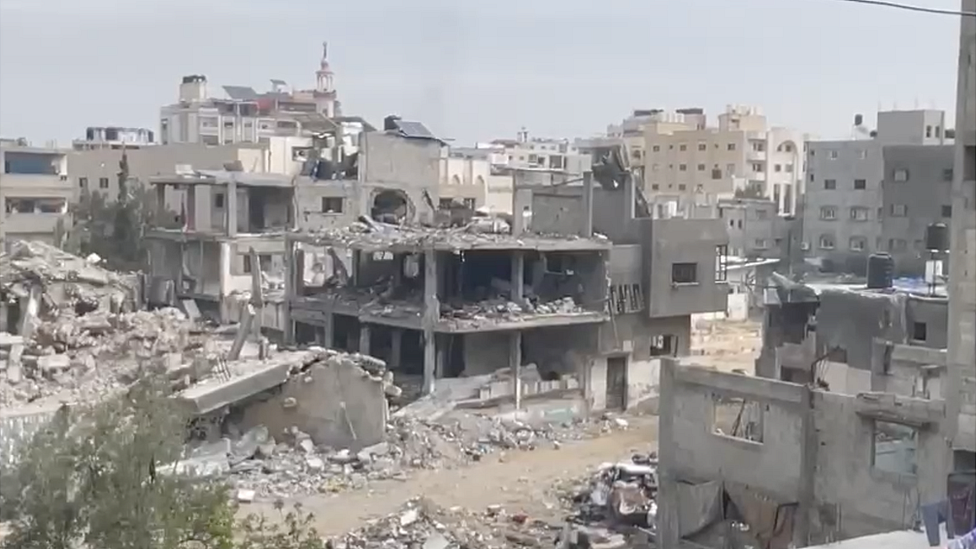
The house where Ahmad's family were killed
The crumpled frame of a silver car, its windscreen twisted into a grimace, sits nearby under overhanging concrete rocks.
One of Ahmad's surviving relatives, Hamid al-Ghuferi, told the BBC that when the strikes began, those who ran away up the hill survived, and those who sheltered in the house were killed.
"It was a fire-belt," he said. "There were strikes on the four houses next to ours. They were hitting a house every 10 minutes."
"110 people from the Ghuferi family were there - our children and relatives," he said. "All but a handful of them were killed."
Survivors say the eldest victim was a 98-year-old grandmother; the youngest a baby boy born just nine days earlier.
Another relative, a cousin who is also called Ahmad, described two big explosions from an air strike.
"There was no advance warning," he said. "If [some] people hadn't already left this area, I think hundreds would have been killed. The area looks totally different now. There was a car park, a place to store water, and three houses plus one big house. The blast obliterated a whole residential area."
Hamid said the survivors had worked until the early hours of the morning to retrieve the bodies from the rubble.
"Airplanes were hovering in the sky, and quadcopters were firing at us as we were trying to pull them out," the cousin Ahmad said.
"We were sitting in the house and we found ourselves under the rubble," Umm Ahmad al-Ghuferi told the BBC. "I was thrown from one side to the other. I don't know how they got me out. We saw death in front of our eyes."
Two and a half months on, they're still trying to reach some of the bodies buried beneath the rubble. The family have collected money to hire a small digger, to chip away at the debris.
"We retrieved four bodies [today]," Ahmad told the BBC, "including my brother's wife and my nephew Mohammed, who was pulled out in pieces. They had been under the rubble for 75 days."
Their temporary graves lie in a piece of empty land nearby, marked by sticks and plastic sheeting.
Ahmad, stuck in Jericho, has not visited them.
"What did I do to be deprived of my mum, my wife, my children and my brothers?" he asked. "They were all civilians."
We asked the Israeli army about the family's allegations that it was targeted by air strikes. In response, the army said it was not aware of the strike in question, and that the Israel Defense Forces (IDF) took "feasible precautions to mitigate civilian harm" in its war with Hamas.
There was intense fighting between Israeli forces and Hamas gunmen in the area of Shejaiyya, a few blocks south of the al-Ghuferi house, in the days immediately before and after Ahmad's family were killed.
In a daily update on 9 December, the army said that it had "identified a number of terrorists armed with anti-tank missiles" approaching troops in Shejaiyya, and called in a helicopter strike on them.
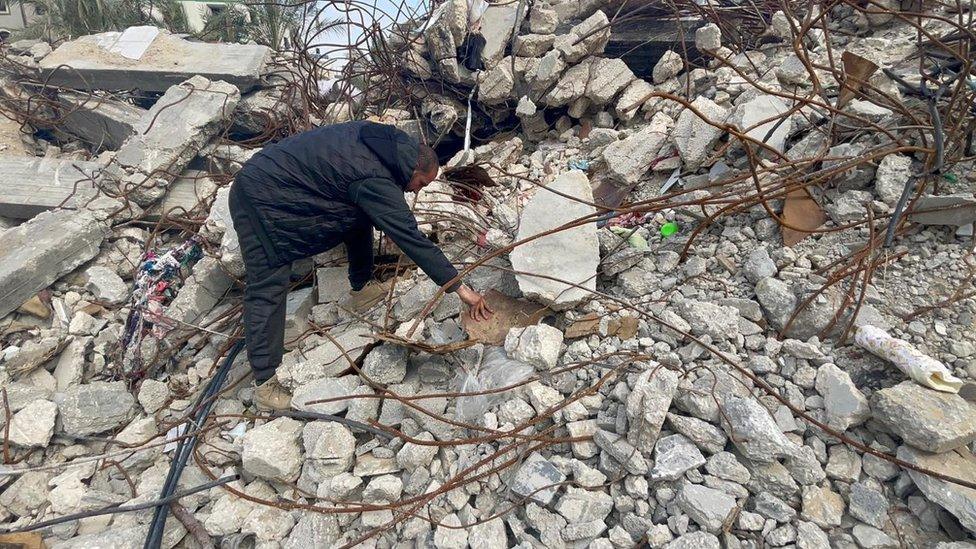
Residents continue to search the rubble by hand to find those buried underneath
It also said fighter jets had been striking terror targets in the Gaza Strip, as ground operations continued.
The area of Zeitoun, where the family house once stood, is now the focus of fresh operations by the IDF.
Stuck in Jericho with his father - another construction worker trapped in the West Bank - Ahmad still sometimes calls his surviving relatives in Gaza. But after months of being trapped outside his beloved home and desperate to return, he is no longer sure if he will ever go back.
"My dream was shattered in Gaza," he said. "Who should I go back for? Who will call me Dad? Who will call me darling? My wife used to tell me I was all her life. Who will tell me that now?"
Related topics
- Published27 February 2024
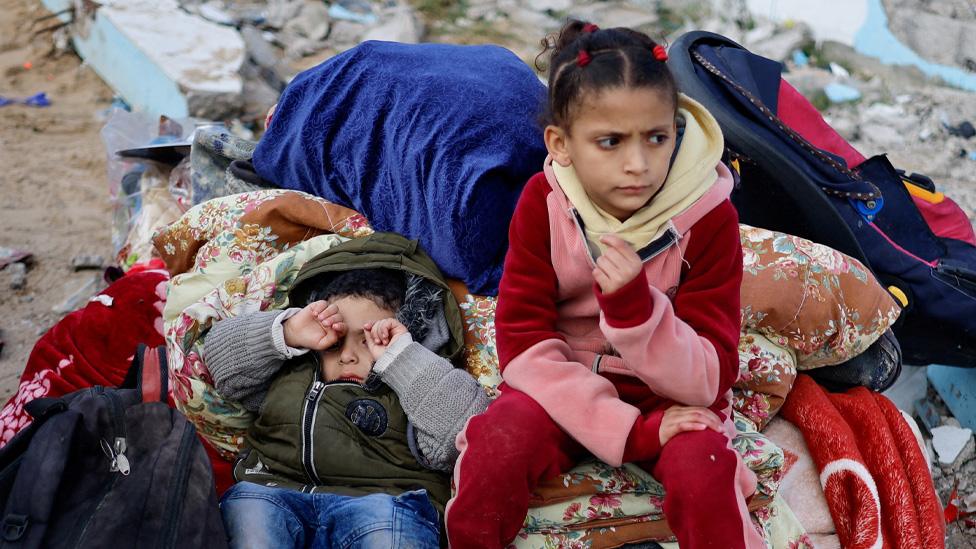
- Published16 January
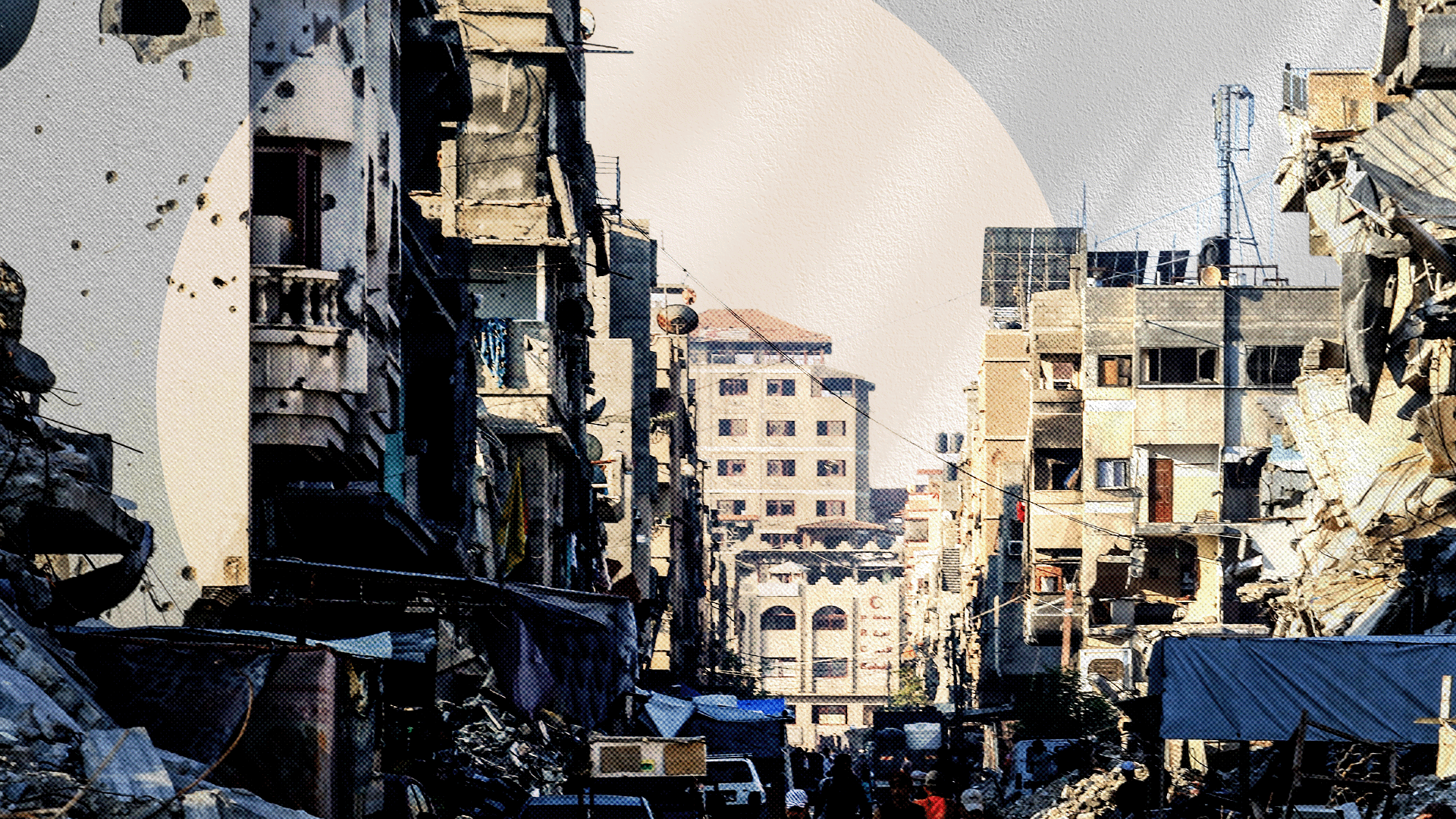
- Published25 February 2024
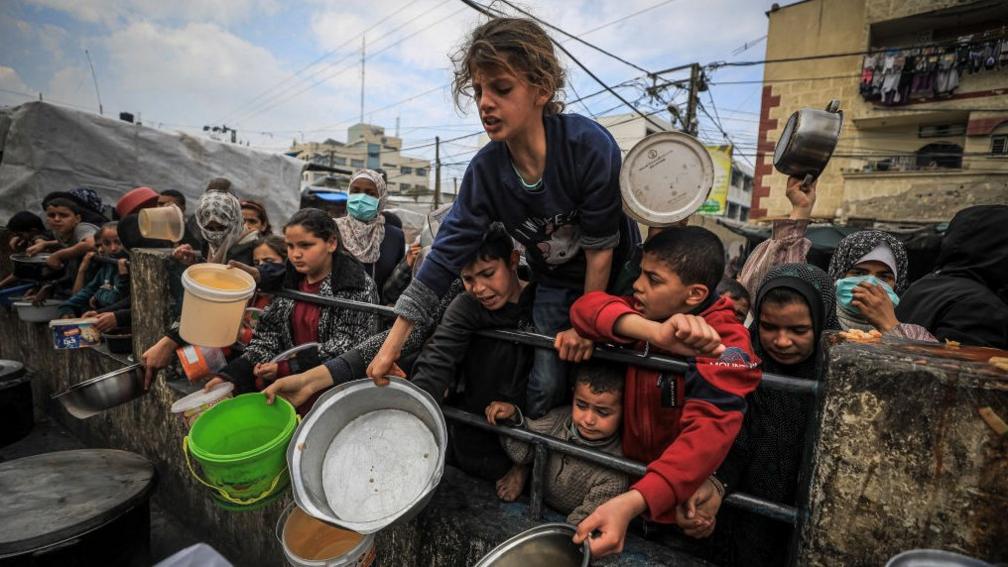
- Published26 February 2024
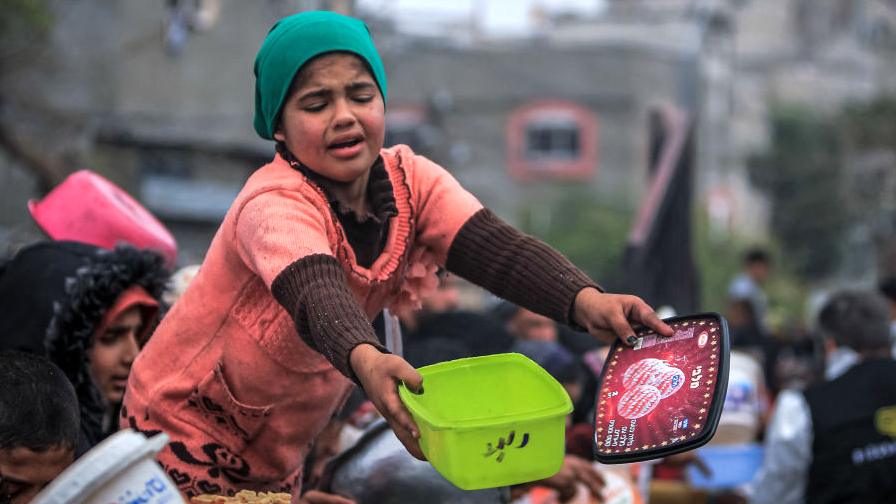
- Published15 February 2024
